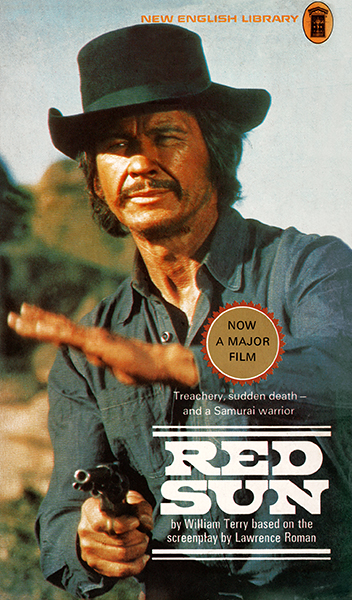A TOWN CALLED BASTARD
By William Terry
NEL, 1971
Revolutionaries massacre a church congregation and destroy its interior. From that day onwards the town becomes known as Bastard.
Some years later Bastard is under the control of bandits masquerading as revolutionaries who kill on the slightest whim. A priest is trying to rebuild the destroyed church and the townspeople live in fear.
A fancy hearse arrives in town, its female owner searching for the man who killed her husband. The woman promises to pay $20,000 in gold if the man who killed her husband is found and delivered to her so his corpse can be placed in the coffin the hearse is transporting. The bandit leader wants that gold, so sets out to find the unnamed killer. Could it be the mysterious man of legend Aguila? Does Aguila even exist?
Further violence will erupt when a brutal army Colonel arrives on the scene searching for an elusive rebel leader and no-one is safe from his savage methods to find the man he seeks.
Based on Richard Aubrey’s screenplay for the spaghetti western of the same name, William Terry does an excellent job of capturing the mood and viciousness on the movie. There are a few scenes in the book that don’t appear in the movie and I don’t know whether the author added these himself or they were including in the screenplay and were omitted from the final cut of the film.
There are some great characters to be found in this story, The Priest, Don Calos, Alvira and her bodyguard, Spectre, to name but a few. Terry captures the harshness of this tale in a very visual way and fleshes the characters out a little more than is done in the film. I seem to remember watching the movie many, many years ago and thinking it didn’t make much sense but the author fills in the gaps so it is much easier to follow. Maybe the censor was responsible for the film being uneven?
Violence is graphic, and the author seems to have added some sexual scenes that don’t appear in the film to spice the book up, but these aren’t graphic. They do help explain why some of the characters act the way they do. There are a few neat twists to the tale before the book ends as brutally as it began.
I must say I much prefer the book version to the film, which was also known as A Town Called Hell in some countries.
William Terry is a pseudonym for author Terry Harknett, perhaps better known for his Edge westerns written as George G. Gilman.
The movie starred Robert Shaw, Stella Stevens, Telly Savalas and Martin Landau. It was produced by S. Benjamin Fisz and was directed by Robert Parrish.






